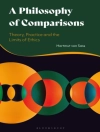Arthur Schopenhauer (1788-1860) crafted one of the most unified philosophical systems by synthesizing Plato, Kant, and Asian religious traditions such as Buddhism and Hinduism into an encyclopedic worldview that combines the empirical science of his day with Eastern mysticism in a radically idealist metaphysics and epistemology. In The Philosophy of Schopenhauer, Dale Jacquette assesses Schopenhauer’s philosophical enterprise and the astonishing implications it has for metaphysics, epistemology, ethics, political philosophy, aesthetics, logic, science, and religion. Jacquette analyses the central topics in Schopenhauer’s philosophy, including his so-called pessimistic appraisal of the human condition, his examination of the concept of death, his dualistic analysis of free will, and his simplified non-Kantian theory of morality. His metaphysics of the world as representation and Will – his most important and controversial contribution – is discussed in depth. The legacy of Schopenhauer’s ideas, in particular his influence on Nietzsche, who was first a follower and then an arch opponent, and the early Wittgenstein, is explored in the final chapter. This introduction makes even the most difficult of Schopenhauer’s ideas accessible without sacrificing any of their complexity.
Dale Jacquette
Philosophy of Schopenhauer [PDF ebook]
Philosophy of Schopenhauer [PDF ebook]
Bu e-kitabı satın alın ve 1 tane daha ÜCRETSİZ kazanın!
Dil İngilizce ● Biçim PDF ● Sayfalar 320 ● ISBN 9780773582668 ● Yayımcı MQUP ● Yayınlanan 2005 ● İndirilebilir 3 kez ● Döviz EUR ● Kimlik 5205226 ● Kopya koruma Adobe DRM
DRM özellikli bir e-kitap okuyucu gerektirir












